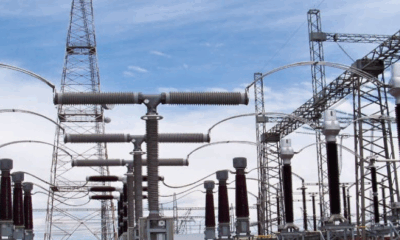News
The Trillion-Rand Black Hole: How Municipal Waste is Crippling South Africa

A number so vast it defies easy comprehension has been laid at the feet of South African taxpayers. Over the past five years, the nation’s municipalities and their entities have collectively reported over R1.09 trillion in fruitless, wasteful, irregular, and unauthorised expenditure.
This astronomical figure, revealed by Finance Minister Enoch Godongwana in a recent parliamentary response, is more than a statistic; it is a ledger of failure that has directly stolen from the pockets of every citizen and crippled essential services.
To put this loss into perspective, the entire national budget for the Department of Health for 2023/24 was R58.6 billion. The wasted funds could have funded the country’s public health system for nearly two decades, building new hospitals, hiring more staff, and securing vital equipment.
Similarly, the Department of Basic Education’s annual budget of R50.1 billion could have been fully covered for over 27 years with this money, transforming thousands of schools and the future of millions of children.
The Anatomy of a Financial Crisis
The R1.09 trillion is not a single stolen pile of cash but a cascade of financial mismanagement, broken down into three devastating categories:
-
Irregular Expenditure: The largest portion, this occurs when procurement laws are floutedlike handing a contract to a connected individual without a proper tender process.
-
Unauthorised Expenditure: This is spending that wasn’t approved or that blew past its budget, meaning it had no legal authority.
-
Fruitless & Wasteful Expenditure: Money spent with absolutely nothing to show for it, often due to sheer negligence or incompetence.
A Crisis of Accountability, Not Just Cash
The core issue, as highlighted by ActionSA MP Alan Beesley who posed the parliamentary question, is a profound lack of consequences. “It is clear that there is no accountability and consequence for public officials,” Beesley stated. “Until incompetent and corrupt officials are either fired or jailed, nothing will change.”
Minister Godongwana himself admitted the figures are “unacceptably high,” pointing to deep-seated weaknesses in oversight and enforcement. The Auditor General has consistently warned that this scale of mismanagement points to both systemic and cultural rot within local government financial management.
While South Africa has strong laws like the Public Finance Management Act (PFMA) and the Municipal Finance Management Act (MFMA) on the books, their enforcement is wildly inconsistent, allowing a culture of impunity to thrive.
The finance minister has proposed a comprehensive spending review and measures to save R40 billion. However, as Godongwana noted, success will depend entirely on “rigorous implementation and sustained political will.” For communities suffering with potholed roads, water shortages, and crumbling infrastructure, this trillion-rand black hole is the reason why. The money was thereit was just squandered.
{Source: Newsday}
Follow Joburg ETC on Facebook, Twitter , TikTok and Instagram
For more News in Johannesburg, visit joburgetc.com



























